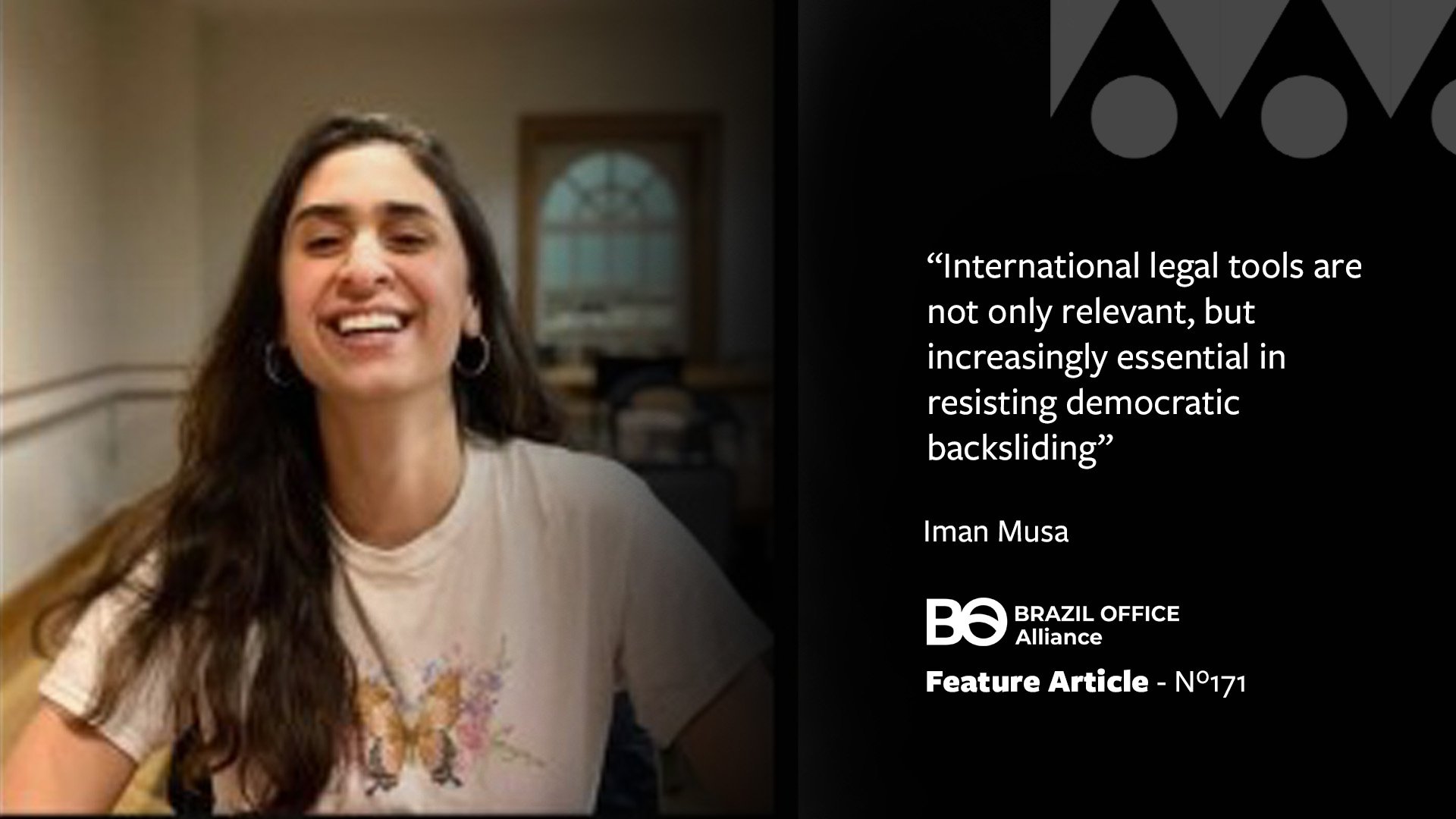Empowering Grassroots Leaders Through International Law: Reflections on the WBO’s Inter-American System on Human Rights Course
By Iman Musa*
Between April and May 2025, the WBO held the online course “Inter-American System on Human Rights,” a groundbreaking initiative that brought together civil society leaders, students, and activists from across Brazil and the Americas. The course was part of the broader project “Strengthening the International Action of Environmental and Indigenous Organizations, Activists, and Defenders in Brazil,” made possible through the generous support of the Behner Stiefel Center for Brazilian Studies at San Diego State University.
Structured around eight sessions totaling 24 hours of instruction, the course provided in-depth and practical knowledge of the Inter-American Human Rights System (IAHRS). Topics included the institutional framework of the Inter-American Commission and Court of Human Rights, procedures for petitions and precautionary measures, and the jurisprudence surrounding Indigenous, environmental, and social rights. Simultaneous interpretation into Portuguese and English ensured linguistic accessibility and regional inclusivity.
The course was taught by an extraordinary lineup of experts, including current and former high-level officials of the Inter-American Commission on Human Rights (IACHR), such as José Luis Caballero Ochoa, Paulo Abrão, Fernanda dos Anjos, Jorge Meza, and Javier Palummo. Their insights offered not only theoretical knowledge but also practical orientation on how to utilize the system to defend rights and secure international protections.
Participants hailed primarily from grassroots organizations and frontline communities in Brazil—many of them young Indigenous and environmental leaders who had never before received structured guidance on how to engage with the Inter-American system. Their participation reflects a growing awareness among Brazilian civil society that international legal tools are not only relevant, but increasingly essential in resisting democratic backsliding, protecting land and environmental rights, and confronting racial and gender-based violence.
More than 30–40 participants attended each session. Informal feedback collected through conversations and emails revealed an overwhelmingly positive reception: participants reported gaining both the confidence and capacity to engage directly with international mechanisms—whether through precautionary measures, friendly settlements, or litigation.
The course reaffirmed the urgent need to demystify international legal tools for those who need them most and the importance of doing so in a culturally and linguistically accessible way. The high level of engagement highlighted both the determination of grassroots actors and the gap in institutional support they often face.
Looking ahead, the WBO is committed to building on this success. Plans are already underway to offer the course on a biannual basis and to select a cohort of top participants for an advocacy delegation to Washington, D.C. These delegates will meet with policymakers, institutions, and international organizations to further amplify the voices of their communities on the global stage.
At a time when the defense of democracy and human rights in Brazil faces mounting pressure, this course has provided a vital platform for education, connection, and action. It has helped shift the Inter-American system from a distant, abstract mechanism into a living tool of resistance—and positioned a new generation of leaders to use that tool with purpose and power.
*Iman Musa is the Public Affairs Specialist at the Washington Brazil Office.
This article was written for issue 171 of the WBO newsletter, dated June 20, 2025. To subscribe and receive free weekly news and analysis like this, simply enter your email in the field provided.


